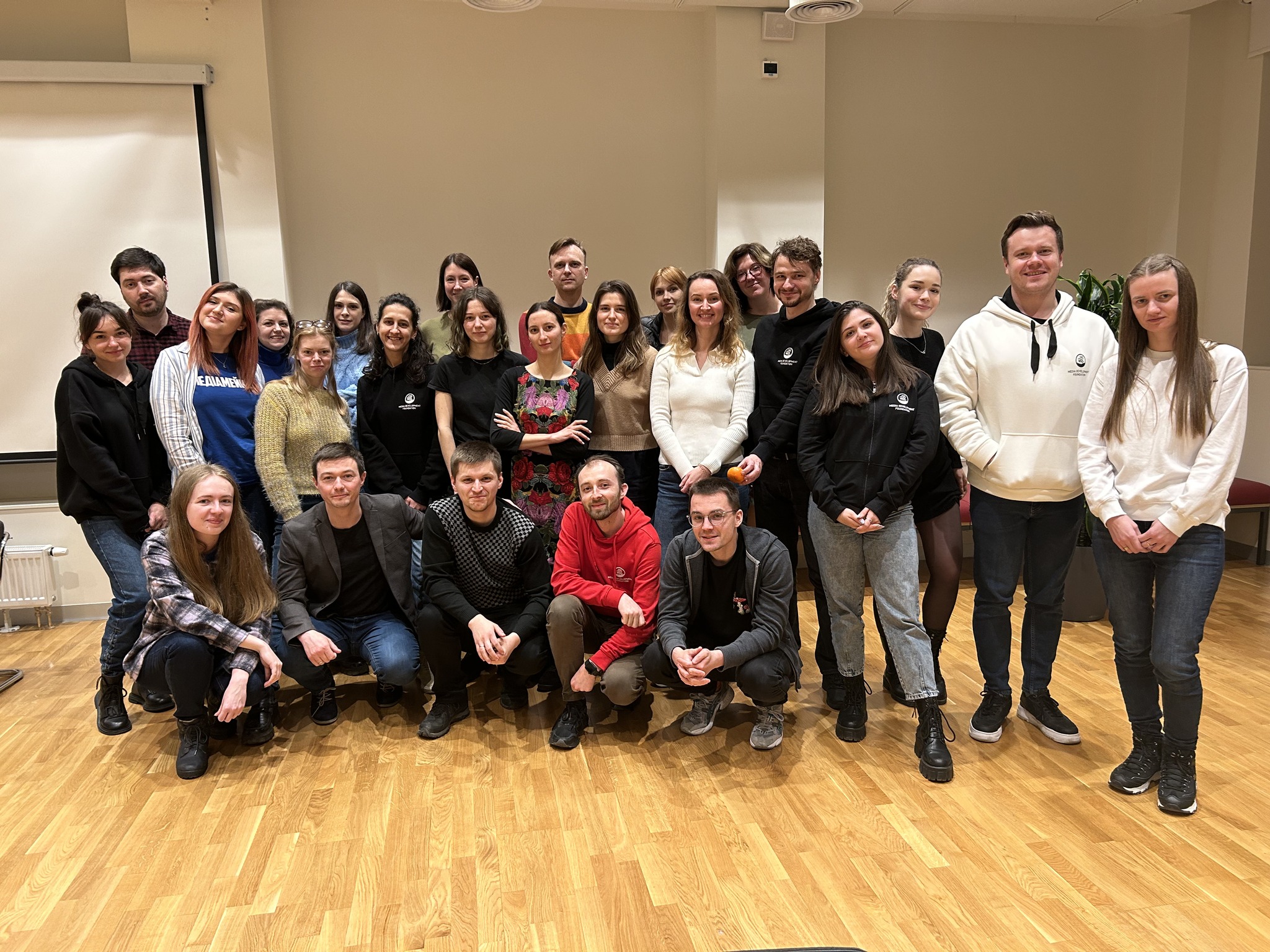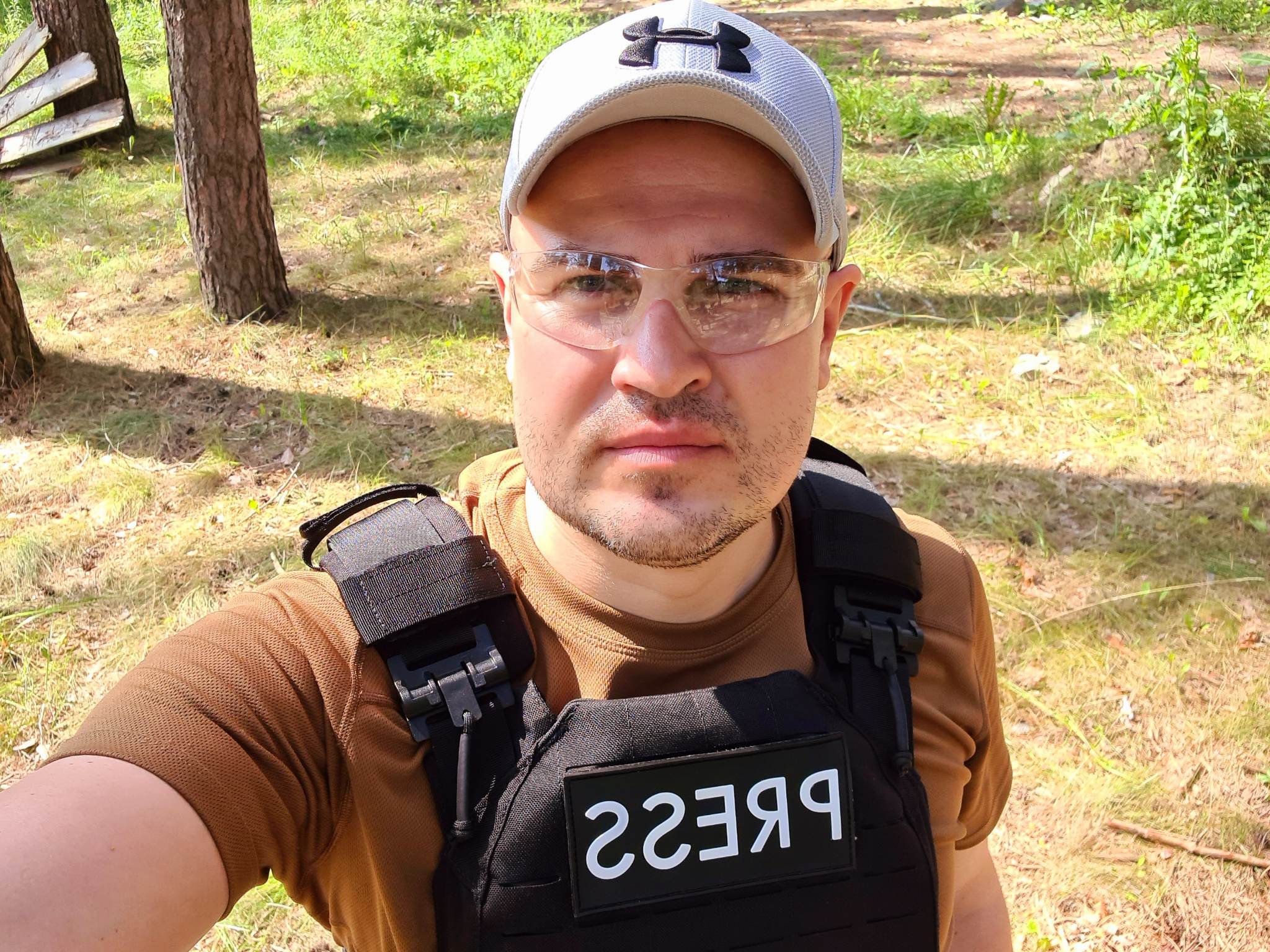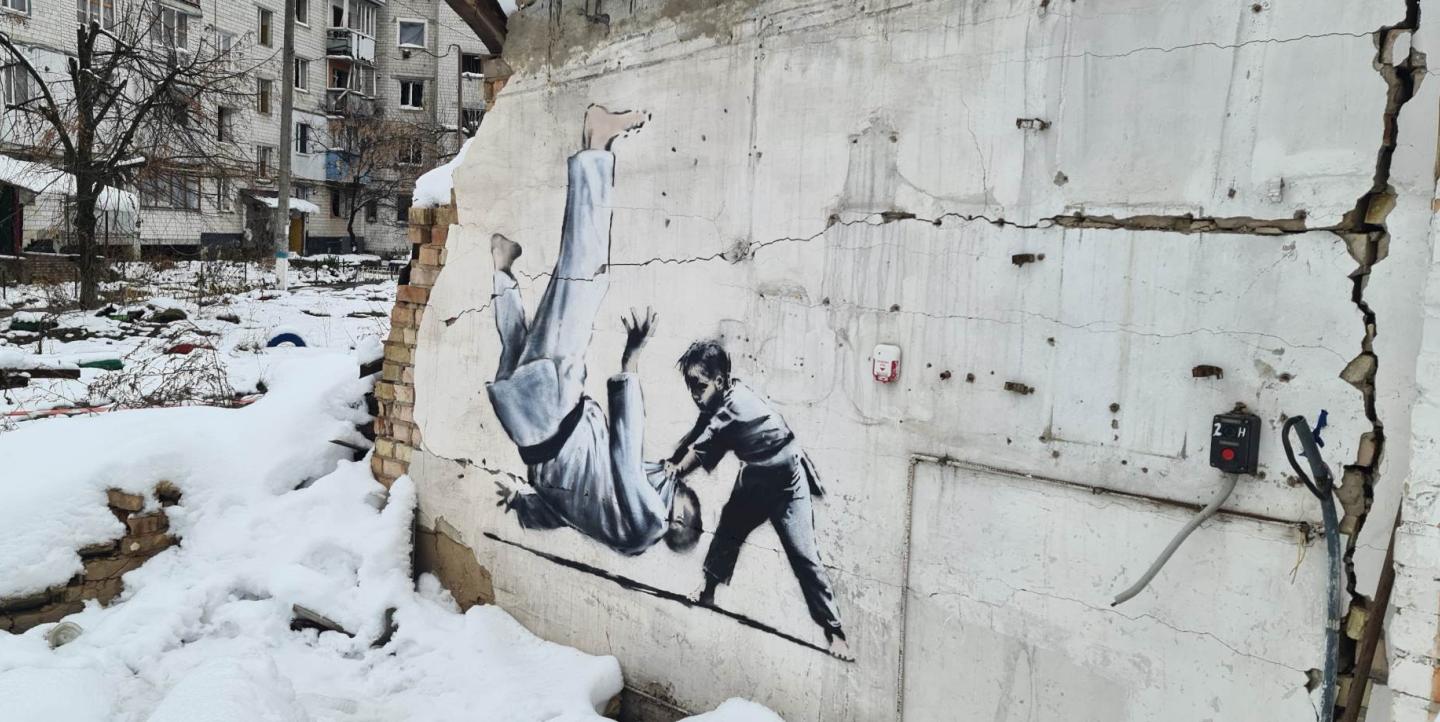A year has passed since Russia launched its full-scale invasion of Ukraine on February 24, 2022. All-out fighting has continued over the past year, resulting in massive loss of both combatant and civilian lives, destroying vital infrastructure and creating one of the worst refugee and global food crises in modern history.
According to the United Nations, Ukraine is among the three countries with the highest number of journalists killed in 2022, and journalists in the country continue to face huge risks. Members of the press are often injured while covering the conflict, and some evidence indicates that Russian troops are deliberately making journalists the target of attacks, according to the Committee to Protect Journalists.
At the same time, many independent media outlets have been blocked in Russia. Russian independent journalists have been harassed and imprisoned on charges of "espionage" and "dissemination of deliberately false information." Most recently, on February 15, a court sentenced journalist Maria Ponomarenko to six years in prison for "distributing fakes about the Russian army."
Faced with increased censorship, the inability to tell the truth, and threats to personal safety and the safety of loved ones, many Russian journalists have decided to emigrate. This has led to the relocation of entire publications abroad. Meanwhile, what media remains in Russia is increasingly pro-war. On February 22, 2023 the International Federation of Journalists suspended the Russian Union of Journalists due to their support of the war.
However, this difficult year for journalists has also seen examples of professional and personal courage, mutual support, selfless help to others, the ability to survive and find new ways of development in difficult circumstances, and creative innovation in journalism. Many media organizations have redeveloped their work and found new ways and goals to operate in a new environment, an example being the Lviv Media Forum, which has provided round-the-clock assistance to the editorial offices of Ukrainian media outlets and individual journalists.
In the course of this year, IJNet published articles in various languages on topics related to the war Russia is waging in Ukraine. These articles focused on the work of Ukrainian and international journalists and fixers during the war (examples can be found here, here, here and here); assistance to Ukrainian journalists; media evacuation; coverage of the refugee crisis; organizing hubs for journalists forced to leave their homes; the situation with journalism in Russia; the safety of journalists; censorship and emigration; the business side of media work; and tools for journalists reporting on the invasion.
On the anniversary of the invasion, we spoke with the authors and subjects of IJNet's Russian-language articles on war-related topics, and asked them how they and their organizations have been professionally and personally affected during the past year.
The war’s impact on journalists
Many of those we spoke with admitted that, in the first months of the war, it was very difficult for them to physically and psychologically cope with the situation. Later on, they learned to adapt — and many were able to start working again.
At the very beginning of the year, IJNet Russian held a webinar during which we spoke with Evgeny Zaslavsky, executive director of the Kyiv-based non-profit Media Development Foundation, and Andrei Bystrov, a media communications trainer, media school co-founder, Zaborona.com video producer, and a former IJNet Journalist of the Month.
Zaslavsky lives in Kyiv. The Media Development Foundation, which has operated for over nine years, consists of 56 local media outlets.
“On the first day of the war, February 24, we wrote letters to all local media participants in our program and offered them our help,” Zaslavsky said. “We decided that we weren’t going anywhere — we’ll help, and give media organizations money we have to pay for necessities (first of all, moving and other basic needs).”

Evgeny Zaslavsky with the Media Development Foundation team working in Ukraine. Photo courtesy of Evgeny Zaslavsky.
“Before the war, our organization worked in [media development]. We wanted to help them develop and control strategy. Because of the war, we had to change a lot,” he continued. “A managerial vacuum arose in all the editorial offices of the program participants — some editors went to volunteer, others joined the military, going into the Armed Forces of Ukraine. The structure of the editorial offices was severely damaged — everywhere, at every level, there weren’t enough people: someone had left, someone died. Also, the audience began to migrate very rapidly — no matter where the editorial offices were, a lot of people were coming and going.”
“Therefore, we began to stabilize the work of editorial offices. We helped them rewrite their strategies. You also need strategy in conditions of uncertainty — on what basis are you going to choose topics, how are you going to decide what to talk about.”
Zaslavsky’s team also bought helmets, body armor, and tourniquets for journalists. Other support methods included psychological assistance for reporters and helping relocate editorial offices from the east of the country — especially from the territories that are under Russian occupation. Over 70 journalists with their families were relocated and had apartments rented out for them.
“The need for journalism must be supported and cultivated. To me, journalism is no less important than military defense,” Zaslavsky said. “Supporting [independent local media] is very important because it takes a lot of time to create. Having lost this school, it’s going to take us a very long time to restore it.”
Bystrov, who lives and works in Kyiv, said that the full-scale invasion has “changed modern Ukrainian journalism.”
“Many journalists who previously covered politics, culture and news became war correspondents,” he said. “I had to quickly learn how to work on the front line, under fire. Online trainings from IJNet, [as well as] tactical medicine classes from the 24.02 Fund have helped a lot. And, of course, it’s life-threatening work. Forty-three journalists on the territory of Ukraine have been killed by Russian soldiers, [or] died as a result of bombings.”
According to the International Federation of Journalists, at least 12 journalists and other media workers were killed in the last year directly in the course of their professional activities.

Andrei Bystrov at work. Photo courtesy of Bystrov.
“The second aspect is the Ukrainian information front,” Bystrov said “Over the past year, the Ukrainian media has been able to jointly form its own information environment and actively resist the Kremlin's propaganda.”
Working in a war
Ukrainian journalist Galyna Ostapovets lives and works in Ukraine. “Living amidst war and working in a war aren’t the same thing. Two years of work in the Donbas cannot be compared with how the war comes to your house, and you absolutely don’t know what to do,” she said.
“Nobody taught me this in any trainings or courses. I had to learn along the way, even with explosions coming from different directions. It was [very difficult], but I think I got through it.”

Galyna Ostapovets during a business trip in the city of Sarny, Rivne region (western Ukraine), April 2022. Photo courtesy of Ostapovets.
During the first months of the war, like many of her colleagues, Ostapovets recalls running on adrenaline nearly 24/7 with breaks only for sleep and food. The war also changed what topics she covered as a journalist.
“Before February 24, I wrote about politics, then already by March 2022 I had to figure out types of weapons, missiles, types of troops, find out what an offensive, defensive is — how it all looks in a real situation. Now I write a lot about the war, including for foreign publications,” she said.
Ira Hoiuk, a Ukrainian journalist, emigrated to Poland, and now continues to cooperate with the Lviv Media Forum from abroad while studying for her master's degree.

Ira Hoiuk works at a coffee shop in her home district of Kyiv in June 2022. Photo courtesy of Ira Goyuk.
“My main task after February 24 was to survive, so I had to focus on the most important thing and put freelancing on pause,” she said. “Professionally, I’ve learned to work under conditions of severe, chronic stress. Only after 8-9 months was I able to regain at least some sense of control over my life, and returned to freelance writing.”
Reporting from exile
Belarusian journalist Nasta Zakharevich covered the protests in Belarus in 2020, after which she was forced to leave the country. She received political asylum in Latvia.
“It was a catastrophic year for Belarusian journalism. Until February 24, 2022, we were still somehow within the world’s interest, but after Russia’s full-scale invasion of Ukraine and the complicity of the Lukashenko regime, Belarus became a pariah, and [few] are interested in our political prisoners,” she said. “It’s becoming more and more difficult to persuade foreign editorial offices to publish materials about repression and torture in Belarus.”
“We, journalists in exile, are increasingly losing contact with Belarus, because the repression there is on the rise and sources refuse to speak [to journalists] — rightly fearing the consequences,” she continued. “For the past six months, I’ve combined volunteer assistance to transit Ukrainian refugees and refugees in Riga with journalism, and I see the Ukrainian topic, unfortunately, no longer arouses the interest of readers like it did at the beginning of the full-scale war.”
The future of journalism in Ukraine
Olena Dub, a journalist and media consultant in Ukraine, said that the invasion on the 24th of February made all planed interviews, projects and trips at the time “irrelevant.”
“For freelancers like me, at first it wasn’t clear what to do. So many journalists volunteered on the information front — they spread information about Ukraine, Russian military war crimes, victims, helped debunk fakes, did investigations, and worked with international media. All this is being done more systematically and efficiently now,” she said.

Olena Dub during work. Photo courtesy of Dub.
Dub left for Poland in March of 2022, where she stayed until August. Later, she joined the team of the ZMINA Human Rights Center, which documents Russian war crimes, and now works out of the western Ukrainian city of Lviv.
“Like everyone else, I live and work in conditions of frequent rocket attacks, air raids, blackouts and often weak internet,” she said. “For the first two months, it seemed that the market would stop, but when the shock passed, the work of journalists intensified. We adapt with generators, batteries, the Starlink network, portable chargers, Zoom, fiber optic internet and creativity."
A year after the start of the war, it’s remains important to continue to draw attention to this topic and support journalists working in Ukraine — and those who were forced to emigrate from Russia, Ukraine and Belarus.
Main photo shows a drawing by Banksy on the destroyed wall of the boiler room of a kindergarten in Borodyanka, which was bombed during Russia's invasion. Photo courtesy of Andrey Bystrov.
This article was originally published on IJNet Russian.


